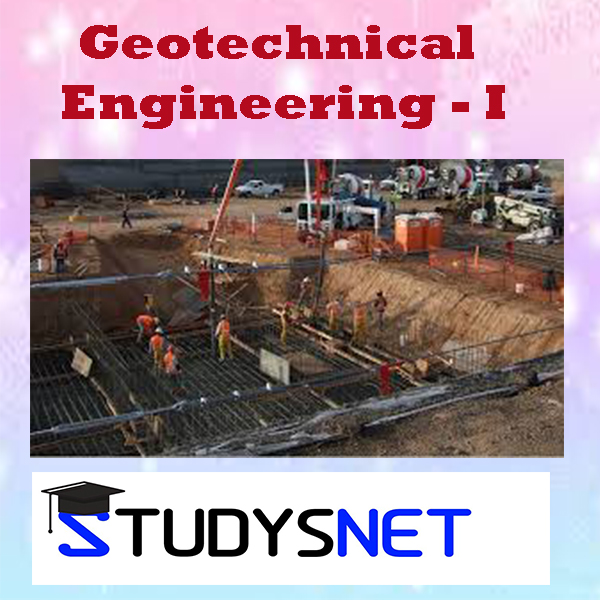Geotechnical Engineering-I free videos and free material uploaded by Ramanjaneyulu K .
Course Learning Objectives:
The objective of this course is:
• To enable the student to find out the index properties of the soil and classify it.
• To impart the concept of seepage of water through soils and determine the seepage discharge.
• To enable the students to differentiate between compaction and consolidation of soils and to determine the magnitude and the rate of consolidation settlement.
• To enable the student to understand the concept of shear strength of soils, assessment of the shear parameters of sands and clays and the areas of their application.
Course Outcomes:
Upon the successful completion of this course
• The student must know the definition of the various parameters related to soil mechanics and establish their inter-relationships.
• The student should be able to know the methods of determination of the various index properties of the soils and classify the soils.
• The student should be able to know the importance of the different engineering properties of the soil such as compaction, permeability, consolidation and shear strength and determine them in the laboratory.
• The student should be able to apply the above concepts in day-to-day civil engineering practice.
SYLLABUS:
UNIT – I
Introduction: Soil formation – soil structure and clay mineralogy – Adsorbed water – Mass- volume relationship –Relative density , Mechanism of compaction – factors affecting – effects of compaction on soil properties - compaction control.
UNIT – II
Index Properties Of Soils: Grain size analysis – Sieve and Hydrometer methods – consistency limits and indices – Various Types of soil Classifications – Unified soil classification and I.S. Soil classification.
UNIT –III
Permeability: Soil water – capillary rise – One dimensioned flow of water through soils – Darcy’s law- permeability – Factors affecting –laboratory determination of coefficient of permeability –Permeability of layered systems. Total, neutral and effective stresses –quick sand condition – 2-D flow and Laplace’s equation - Seepage through soils –Flow nets: Characteristics and Uses.
UNIT – IV
Stress Distribution In Soils: Stresses induced by applied loads - Boussinesq’s and Westergaard’s theories for point loads and areas of different shapes– Newmark’s influence chart – 2:1 stress distribution method.
UNIT – V
Consolidation: Compressibility of soils – e-p and e-log p curves – Stress history – Concept of consolidation - Spring Analogy - Terzaghi’s theory of one-dimensional Consolidation – Time rate of consolidation and degree of consolidation – Determination of coefficient of consolidation (cv) - Over consolidated and normally consolidated clays.
UNIT – VI
Shear Strength of Soils: Basic mechanism of shear strength - Mohr – Coulomb Failure theories – Stress-Strain behavior of Sands - Critical Void Ratio – Stress-Strain behavior of clays – Shear Strength determination- various drainage conditions.
- Geotechnical Engineering - I lecture notes unit- 1
- Geotechnical Engineering - I lecture notes unit- 2
- Geotechnical Engineering - I lecture notes unit- 3
- Geotechnical Engineering - I lecture notes unit- 4
- Geotechnical Engineering - I lecture notes unit- 5
- Geotechnical Engineering - I lecture notes unit- 6

- 0 Reviews
- 23 Students
- 73 Courses

Write a public review